When you’re interested in a career in transportation, you need to show your potential employer that you have the perfect combination of skills and experience. A great resume is the first step to landing an interview, so it needs to showcase your strengths concisely and professionally. In addition, your resume must communicate who you are as a candidate, which is why it needs to be tailored to the specific job for which you are applying. A Transportation resume will include details such as your education and training, job experience, special skills or certifications, and any other information that may be relevant when applying for a job in this field. Use this sample resume as a guideline if you’re looking for ideas on how to structure your resume or if you want some examples of what not to do when creating yours.
Transportation Resume Example

Download This Transportation Resume as PDF
Co-Pilot Resume Example
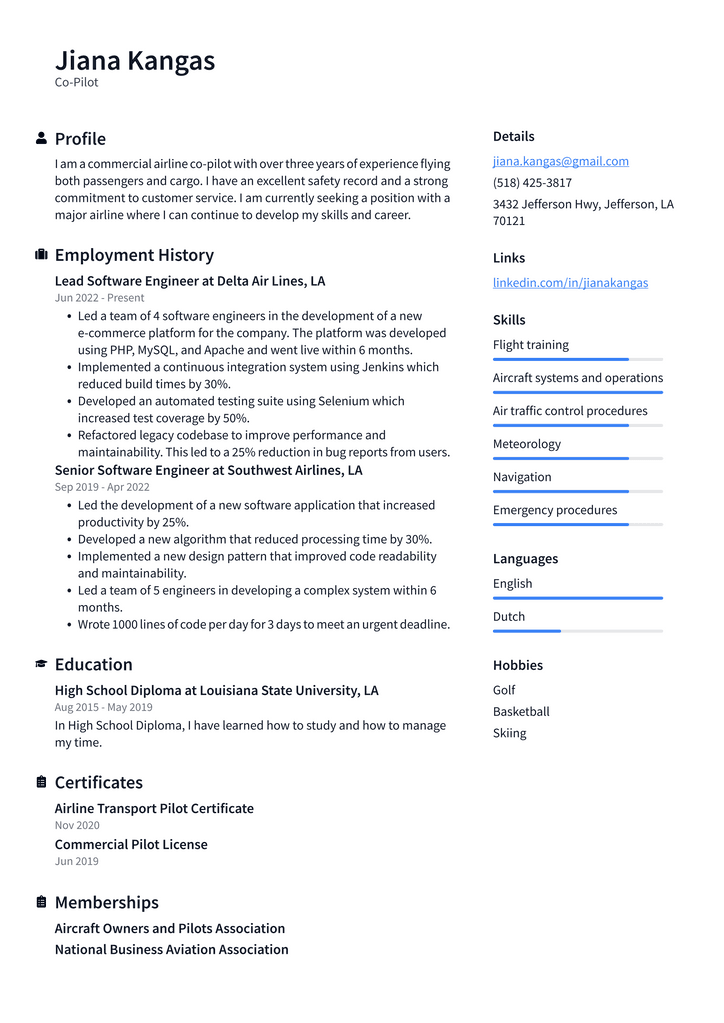
Download This Co-Pilot Resume as PDF
Airline Manager Resume Example
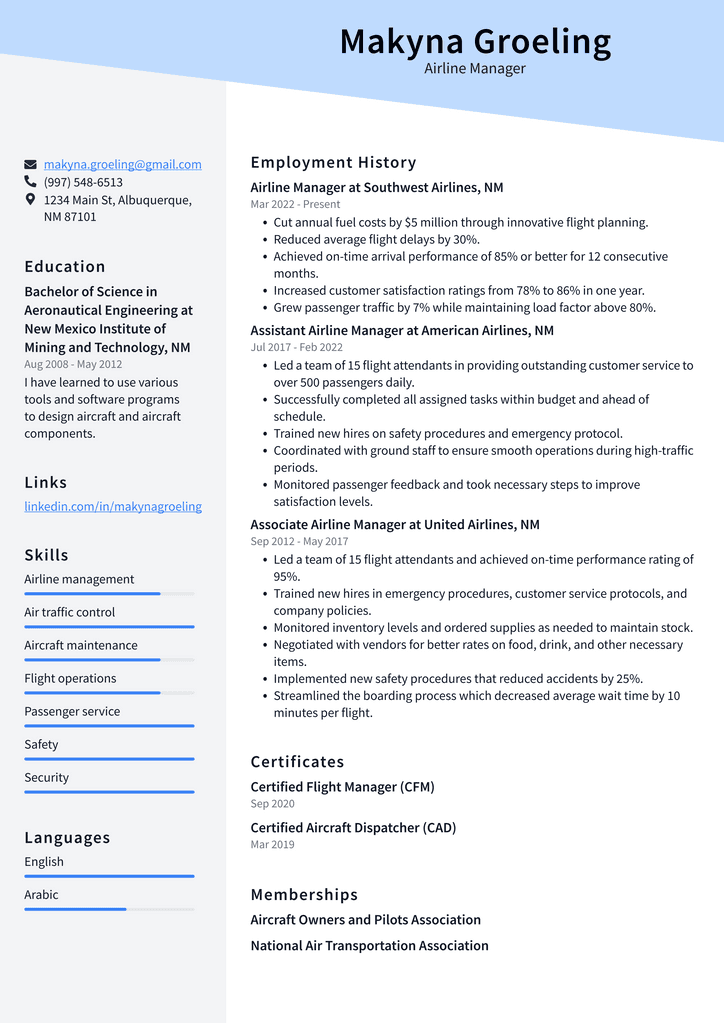
Download This Airline Manager Resume as PDF
Pilot Resume Example
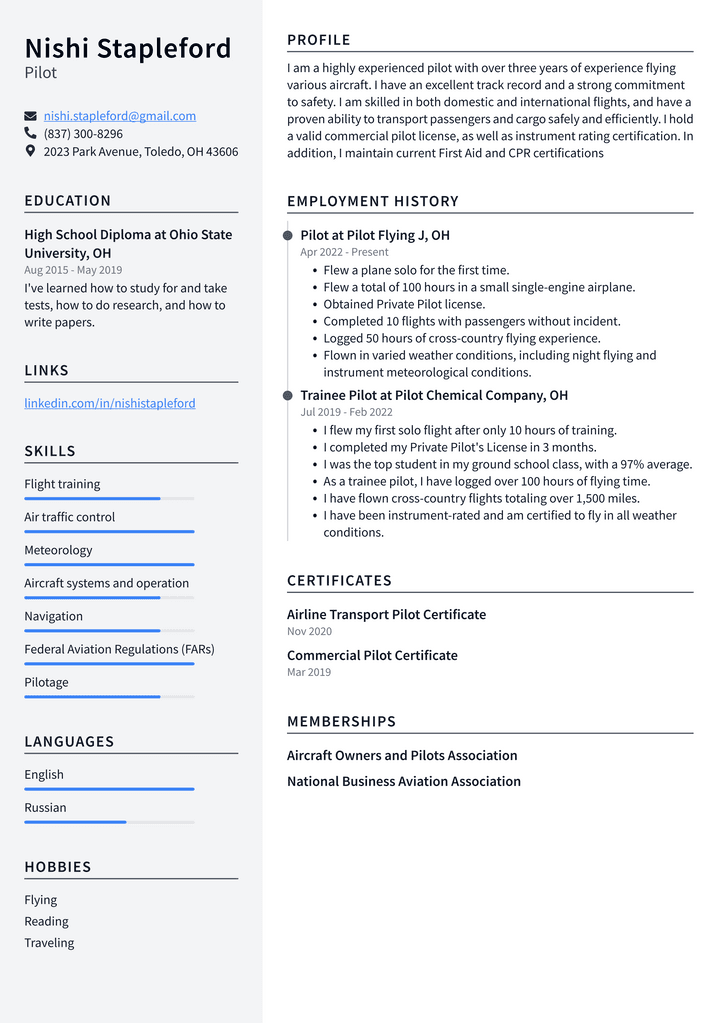
Download This Pilot Resume as PDF
Flight Engineer Resume Example
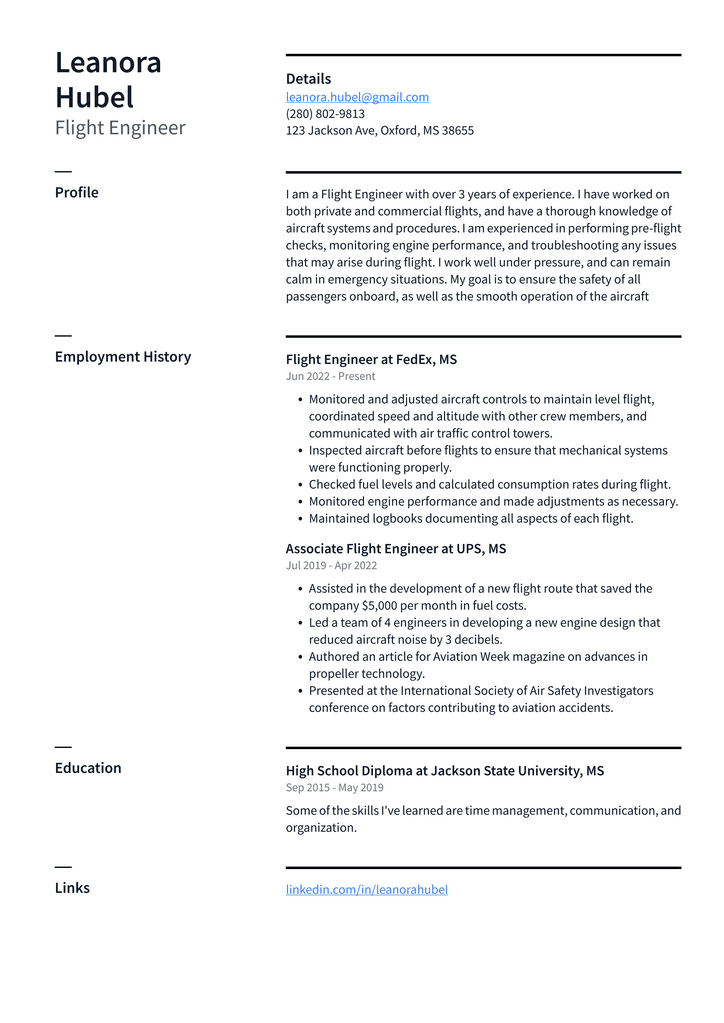
Download This Flight Engineer Resume as PDF
Air Traffic Controller Resume Example
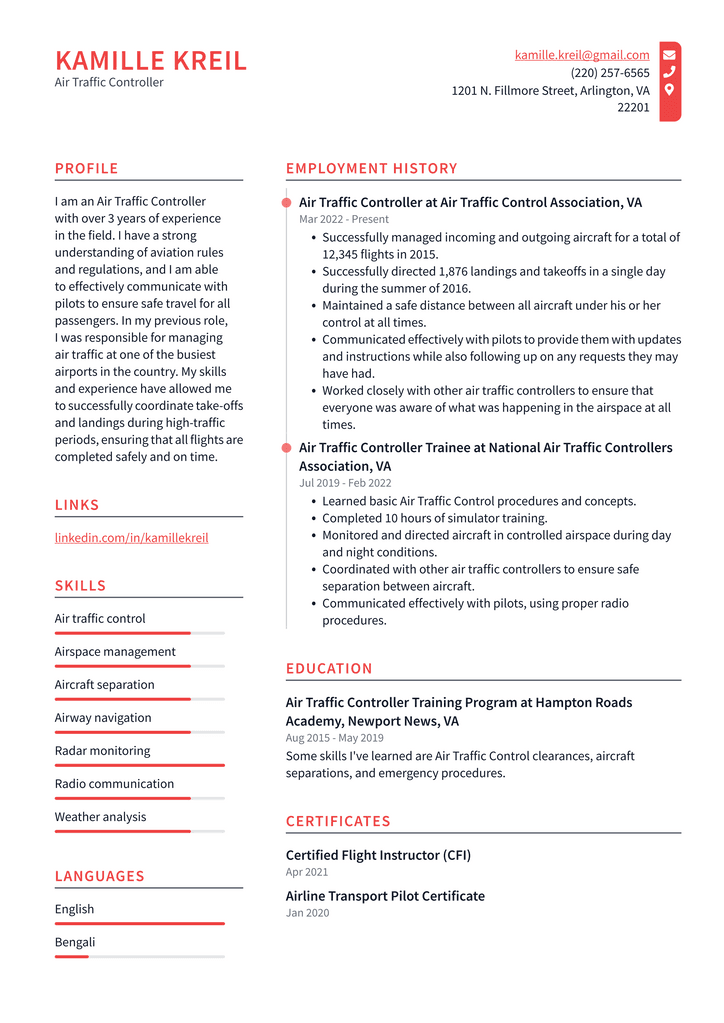
Download This Air Traffic Controller Resume as PDF
Airport Manager Resume Example
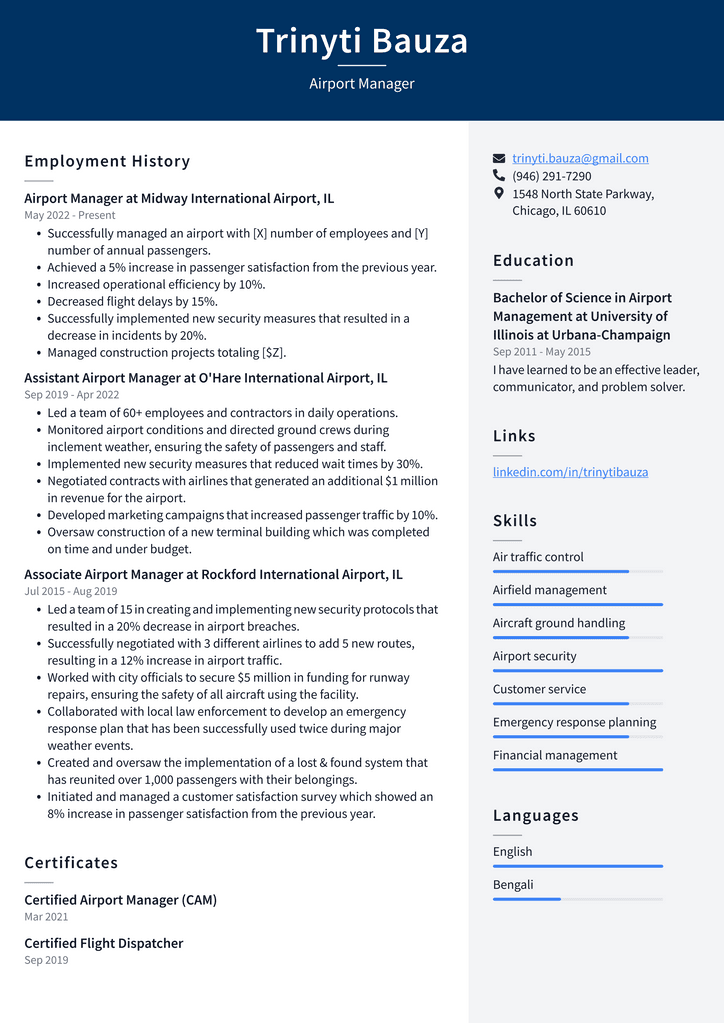
Download This Airport Manager Resume as PDF
Build a Strong Resume with Keywords and Skills
The first thing you need to do is research the job requirements for various positions in transportation. This will help you understand what hiring managers are looking for in candidates. Next, you should review job descriptions for your exciting classes. Finally, make a note of any skills or keywords that are mentioned frequently. These are the things you’ll want to emphasize in your resume. Using the right keywords and phrases can help your resume get past automated screening systems and get noticed by humans. Employers tend to search for specific terms when reviewing applications, so ensure that you include these keywords in your resume. If you’re unsure what keywords to use, you can use tools like Indeed’s Resume Analyzer or the Jobscan Blog to get some ideas. These tools will scan your resume and let you know what might be missing or what can be improved so that you can make your resume stronger. Again, using the right keywords and phrases can help you get past automated screening systems and get noticed by humans. Furthermore, employers tend to search for specific terms when reviewing applications, so ensure that you include these keywords in your resume.
How to Find the Right Job for You
One of the first steps to creating a solid resume is knowing exactly what job you want to apply for. This will help you determine what skills you should highlight on your resume and what kinds of employers to target. If you’re not sure what type of job you want, try some of these techniques to find the right fit. Next, assess your skills and interests – Regardless of the field, specific skills are more in-demand than others. This might mean that particular areas are more competitive than others, but it can also help you narrow down the options. – Consider your lifestyle – Certain jobs allow you to balance work and life better than others. If you have things like family obligations or social life that you need to attend to, you’ll want to make sure that you are putting yourself in a position to succeed. – Consider your financial needs – We all have to make a living, but finding a job that you love is also essential. Some jobs pay a lot more than others, so you’ll want to make sure that you are in a position to make a living doing something that you love.
What to Include in Your Transportation Resume
You’ll want to include various elements in your resume, including your name, contact information, work history, education, and any certifications or special skills that may be relevant to the job you’re applying for. A transportation resume is typically broken into two sections – the introduction and the body. The introduction should include your name, contact information, education, and any significant accomplishments or special skills you may have. The body of your resume can be broken down into three sections. The first section should include your work experience. The second section should consist of your education. The third section should include any skills or special abilities you have that are not related to your work experience.
Education and Training
Education is one of the first things hiring managers will look for on your resume, so ensure that you include your degree and any relevant coursework or specializations you may have. If you have worked towards a degree in a transportation-related field, include the school name and the degree title. If you’re currently working towards a degree, note the program and how long it will take to complete. If you have any special training, certification, or licensing related to the transportation field, be sure to include that as well. Employers prioritize accreditation and training, so you’ll want to ensure that these things are listed on your resume. Finally, if you have taken any online courses, ensure that you include the name of the school, the course title, and the date you completed the course.
Professional Certification
If you have any professional certifications, be sure to list those on your resume. This is especially important if you have a certificate from a reputable organization or experience in the field that the certification relates to. It’s also a good idea to list the date you obtained the certification and any relevant coursework that may have been required for the certificate. If you’re applying for a position that requires certification, make sure you include that on your resume so that you don’t miss out on jobs that are perfect for you. It’s also a good idea to check out certification requirements on job boards to see if they are required for certain positions.
Employment History
If you have significant work experience, it’s a good idea to include this on your resume. On the other hand, you may want to consider including your least relevant job if you don’t have enough experience yet. This way, you can show prospective employers that you have the work ethic and dedication needed to succeed in the field. If you are choosing which jobs to include on your resume, make sure that the positions are relevant to the career path you want to take. This will help you develop a more robust application and get noticed by hiring managers.
Summary
When you’ve finished writing your resume, review it carefully for mistakes and make any necessary edits before submitting it for consideration. Then, when you’re applying for jobs, tailor your resume to each specific position to show hiring managers that you are the perfect candidate for the job. A well-written and well-formatted resume will get you noticed, but only if you do the work to make it great.